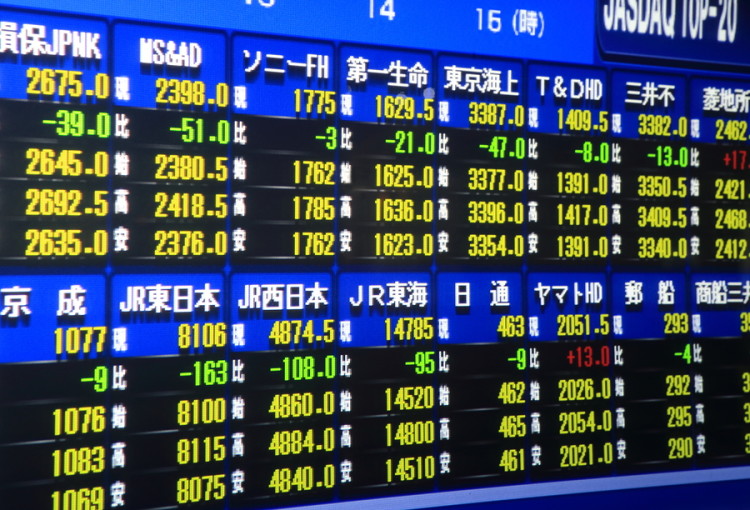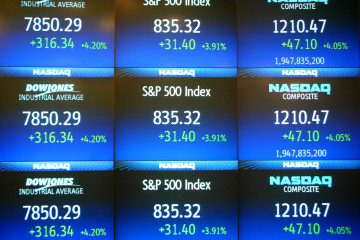Asian Futures Signal Stock Losses as Yen Comes Back, Bonds Drop

©2016 Bloomberg News
O3UKOZ6JTSEE
(Bloomberg) — Asian stocks looked set to track losses in Europe, after the central bank’s unprecedented bolstering of monetary policy failed to ignite equity gains and instead boosted the euro. While sovereign debt retreated, the yen advanced.
Shares in Australia and New Zealand dropped as Japanese index futures slid following a 1.7 percent drop in the European benchmark and a lackluster session for U.S. stocks. The yen reversed some of Thursday’s losses to the euro and headed for a second weekly advance against the dollar as investors looked past the European Central Bank’s interest-rate cuts and increased bond buying to focus on concern policy makers have lost their potency when it comes to righting the global economy. Australian government bonds tracked a slide in Treasuries, while U.S. crude edged back toward $38 a barrel.
Mounting concern that central banks have lost the ability to jolt financial markets out of turmoil risks derailing a rally in global equities, with the MSCI All-Country World Index on track for its first weekly decline in a month. While the ECB’s announcement was an initial shot in the arm for riskier assets, President Mario Draghi’s indication that rates won’t be cut further reversed sentiment, with investors taking less than 90 minutes to go from overwhelmed at the scale of his move to underwhelmed at the stimulus outlook. While China is due to release a slew of economic data at the weekend, the focus now shifts to next week’s meetings of the Bank of Japan and the Federal Reserve.
“Markets did not like this news,” Matthew Sherwood, head of investment strategy at Perpetual Ltd. in Sydney, said in an e- mail to clients. “The ECB pulled out its bazooka overnight and unleashed a bold package of stimulus which exceeded or met expectation on every count, but then the ECB president in his news conference suggested that there would not be deeper cuts to negative regional deposit rates, which seemingly limits the extent to which the ECB can use policy to lower the euro.”
Data on Japanese industry and manufacturing is due Friday, along with the Philippines jobless rate and Malaysian industrial output. China’s National People’s Congress continues, with reports on industrial production, retail sales and fixed assets scheduled for Saturday.
Stocks
Energy producers and telephone shares drove Australia’s S&P/ASX 200 Index down 0.1 percent as of 8:44 a.m. Tokyo time, trimming a second week of gains for the stock gauge. New Zealand’s S&P/NZX 50 Index, the first major equity measure to start trading each day in the Asia-Pacific region, halted a nine-day advance, lost 0.3 percent.
Standard & Poor’s 500 Index futures were little changed early Friday after the index ended a tumultuous day little changed. The U.S. benchmark swung between gains and losses of at least 0.8 percent Thursday following the selloff in Europe.
In Japan, futures on the Nikkei 225 Stock Average were bid down 1.2 percent in the Osaka pre-market, to 16,510, while yen- denominated contracts on the gauge fell 0.2 percent to 15,510. The yen, which typically moves at odds with Japanese stocks, gained 0.3 percent to 112.88 per dollar, and added 0.3 percent against the euro after tumbling 1.5 percent last session.
Futures on the Kospi index in Seoul slipped 0.3 percent in most recent trading, and those on the FTSE China A50 Index were down 0.8 percent.
–With assistance from Jeremy Herron.
To contact the reporter on this story: Emma O’Brien in Wellington at eobrien6@bloomberg.net To contact the editors responsible for this story: Emma O’Brien at eobrien6@bloomberg.net John McCluskey






No Comment